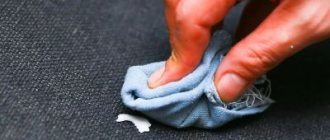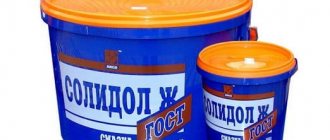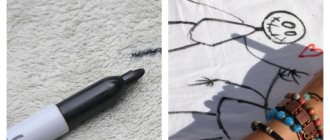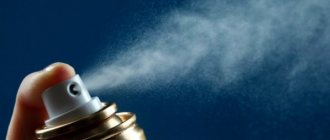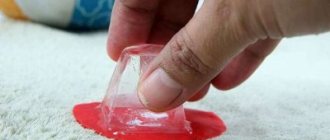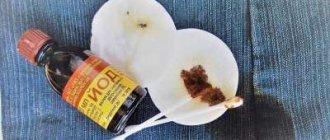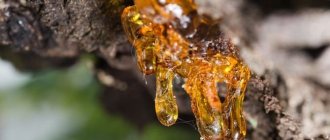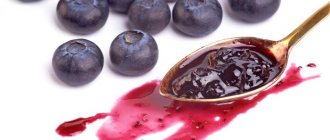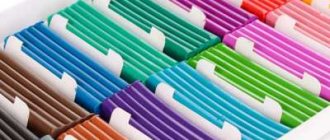At work, at home or in transport, there may be chewing gum on your clothes. The problem is that it is quite difficult to remove, and the effort spent does not always give a good result. Often a favorite item turns out to be hopelessly damaged, a school uniform is constantly stained, and children's pants have to be bought new.
You can remove chewing gum without damaging your clothes if you approach the problem wisely. If you find an unwanted substance, you do not need to do it quickly and immediately tear it off or wipe it off the fabric. This can cause harm: the chewing gum will smear and penetrate deeper into the fibers of the material. Removal on the body is not recommended. You should remove the item, spread the contaminated area on a flat surface, and only then begin cleaning.
The following methods will help correct the unpleasant situation when chewing gum sticks to clothes.
How to choose the right cleaning method
Known methods for removing chewing gum from clothes are divided into types:
- hot;
- cold;
- chemical;
- using home remedies.
The choice of technology that can eliminate the problem on a woven base is carried out taking into account the type and properties of the material and the color of the product.
Delicate fabrics that are sensitive to high temperatures are not recommended to be cleaned with an iron or hot water. This applies to satin, chiffon and silks. For them, use a cooling aerosol, dry ice or a commercial spray. For natural wool and synthetics with unstable coloring that can fade, hot steam and boiling water are prohibited.
Cold methods of dealing with chewing gum on clothing are the safest, but are suitable for fresh stains in a small area. It is not always possible to achieve a positive effect on outdated pollution.
It should be remembered that harsh chemicals on susceptible fabrics will get rid of the sticky mass, but will leave an impressive faded stain on an expensive jacket.
Gasoline, acetone and other aggressive preparations are not used to clean velvet, corduroy, or fabrics with colored patterns. Before using them, it is advisable to carry out testing in an inconspicuous area or on the reverse side, so as not to discolor the item and avoid mechanical damage.
Cold and hot water
You can use cold water using the following method: turn on the tap with ice water and place the area on the clothing with the problem stain under the stream. Under the influence of cold temperatures, a local spot will begin to color and lag behind the fabric structures of the clothing. Residual bubble gum particles can be removed using a cleaning brush.
Before using hot water, you should study the information on the clothing label: if the fabric can be washed at high temperatures, then the contaminated item should be poured with boiling water and left until the “dried toffee” has completely softened. Then it will be easy to remove it with a brush.
Exposure to cold
- You should not try to remove chewing gum at room temperature. It will not be possible to achieve the result, and even the thing will deteriorate. You just need to put the product in a bag so that it doesn’t get dirty, and then place it in the freezer for 40-60 minutes. Frozen chewing gum can be easily removed from the fabric and leaves no traces. The method is suitable for delicate and thin materials, because frozen chewing gum has no adhesive properties and does not damage the fibers. Freezing is effective for cleaning trousers, skirts, blouses, and dresses that have small dimensions.
- When you need to save large things: a jacket, a down jacket, a jacket or upholstered furniture, then the situation is more complicated. But there is a solution for such cases too. The same principle of freezing will help. The contents of the freezer should be collected in a bag and applied to the contamination. An ice cloth won't work because it will dampen the rubber band and end up leaving a stain. After half an hour, remove and scrape off the solid mass. Ice is effective for leather and drape clothing, woolen sweaters, and fur products.
What not to do
Before cleaning a blanket from chewing gum, read the following rules. Prohibited:
- Use sharp objects, sandpaper, metal brushes.
- Rub the dirt vigorously.
- Hurry. Attempts to speed up the process are the main reason for negative results.
- Try to get rid of the gum mechanically, without preliminary treatment (cold, hot, chemical).
- Leave the cleaning procedure incomplete. After removing the sticky mass, the fabric must be washed. Which will get rid of the appearance of greasy marks.
Removing chewing gum from jeans
Before using any of the methods, you should try to remove the gum from your jeans as best as possible. The above methods are also suitable for other dense fabrics with cotton fibers.
- It is recommended to start with detergents, for example, Fairy. The liquid is applied to a sponge and the contaminated area is treated with rubbing movements. The steps are repeated until the substance is completely dissolved.
- Boiling water successfully cleans jeans. The affected area of clothing should be immersed in it and wait until the elastic band softens. Collect the soft mass with a toothbrush and wipe off the residue.
- An alternative to boiling water may be an iron. The problem area is covered with a sheet of paper or cardboard and carefully pressed with a hot iron from the wrong side. There is no need to move it across the fabric. As a result, the chewing gum will stick from the material onto the paper and can be easily removed. Exposure to the front side through a cloth pad or directly onto the gum increases the area of contamination. The elastic band “blurs” when heated. Damage to the surface of the electrical appliance is also possible.
- Scotch tape will help remove chewing gum. It will remove the residue after removing the main part. The tape is glued to the problem area and torn off with a sharp movement. Fragments of gum end up on the tape. The procedure is repeated until all traces disappear.
Mechanical methods
These methods are combined with others to remove the remaining sticky mass of chewing gum.
Knife
Typically, a dull knife (such as a table knife) is used to scrape off hardened gum. It is not recommended to use a razor or a sharp knife to avoid damaging the product. The knife can be used for any type of material, but it should be used carefully.
Hard brush
After preliminary removal of the main sticky mass, the remaining stain is treated with some means and then cleaned with a brush.
Scotch
Fresh gum from any surface can be quickly removed with tape. To do this, the tape is applied to the chewing gum, pressed tightly, then abruptly torn off. Repeat until all the mass is removed.
Chewing gum
The principle is this: chew a new gum and stick it to the already stuck one, then sharply peel it off, and so on several times. This method works on newly stuck rubber bands. But if the mass has eaten into the fabric, this will only worsen the situation.
How to Clean Chewing Gum
Chewing gum on your favorite clothes is upsetting. It turns out that it is possible to remove stuck gum at home without leaving stains.
- Olive, peanut, nut oil or, in extreme cases, sunflower oil will come to the rescue. To clean, the affected trousers or shirt will have to be removed so that the oil does not go beyond the treatment limits and the greasy stain does not increase. Apply any oil exactly to the gum using an old toothbrush. You should try to touch the fabric as little as possible. The rubber band will soften and come off. Residues are cleaned off with a blunt instrument. The item should be washed with stain remover or dish soap, because oil will create a greasy stain. And there’s not a trace of chewing gum.
- An ice cube or dry ice should be placed directly on the gum. When it becomes cold, carefully tear it off, holding the material.
- Using high temperatures. The method is suitable for fabrics that are resistant to such exposure. Direct a stream of hot water from a kettle or tap onto the problem area. The chewing gum will become pliable and can be removed with a brush or knife. After this, wash with detergent.
- Effective effect on chewing gum with steam. It will soften and can be easily removed with a knife and a cloth.
- As a last resort, when you need to clean clothes without removing them, you can do this using a hair dryer with a crevice nozzle. Use a stream of warm air to treat the stain and wait until it dries. In this state, the chewing gum loses its elasticity and stickiness. The method is suitable for any type of fabric with a fresh stain.
- Supporters of modern technologies can be advised to purchase a stain remover or spray to remove chewing gum. They are sprayed onto the affected area and get rid of contamination. The effectiveness is comparable to traditional methods, but will cost more.
- Repeated washing can remove stubborn stains from clothes. Soak the item in hot water with washing powder. Treat the stain with additional detergent. Leave for 40-50 minutes. Then wash in the washing machine twice.
There is an opinion that stuck gum can be removed by applying another chewing gum to it. In reality, this only leads to the formation of persistent, difficult to remove stains that cannot be removed at home.
Peanut butter
Vegetable oils have the ability to reduce the adhesion of chewing gum to the fibers of the fabric structure of clothing. Peanut oil is the most effective. But when using it, you should exercise maximum care and attention, since this delicious product has a greasy consistency, and if it gets on a clean area of clothing, a greasy stain may remain. To eliminate the “toffee”, you need to smear it with peanut butter using a cotton swab, and then scrape it off with the back of a knife or a nail file.
Chemicals for hopeless cases
When several methods have been tried, but chewing gum does not work, then this is not a reason for despair. For old formations, it is recommended to use chemical cleaning, which reduces the risk of residual stains and streaks. Housewives always have products such as cologne, vinegar, ammonia and gasoline in their arsenal. The choice will depend on the type of fabric. After removing the stain, the product should be washed to remove the odor.
- Moisten a cotton pad with cologne and treat the fabric. You can carefully pour the product from a spoon onto the area with the chewing gum. Clean off the surface with a brush. Rinse clothes with warm water.
- The vinegar will need to be slightly warmed on the stove or in the microwave (1 minute is enough). Wipe off the dirt with a soft toothbrush, soaking it in vinegar. You need to act quickly before the vinegar cools down. Processing is prohibited on corduroy because the pile is damaged. It is also not suitable for delicate fabrics such as satin and silk, as friction may cause a hole to appear.
- Gasoline is used for old stains and sticky residues. It removes smeared, sticky particles better than other products. After exposure, the marks completely disappear. The method is only suitable for dense fabrics and is not used for synthetics. Gasoline can also damage thin materials. Moisten a linen napkin or cotton pad with gasoline. Blot the area of fabric with any remaining chewing gum.
- Ammonia works well on most stains, including chewing gum stains. Place a cotton swab soaked in ammonia on the gum and leave for a couple of hours. Carefully scrape off the sticky substance. Washing will remove any residue.
Features of processing different types of fabric
When using traditional methods, you need to take into account the structure of the material.
Wool
The best way to remove chewing gum from a wool blanket is to freeze it with ice cubes or a freezing spray. After it, the stuck lumps come off the surface without disturbing the fleecy texture.
Cotton
You can remove gum in the following ways:
- Freezing;
- Vinegar heated to 40 °C;
- Alcohol-containing substances (vodka, cologne, etc.);
- Water heated to 80-90 °C.
Linen
Exposure to negative temperatures will help quickly clean a linen blanket from sticky mass.
Fur
The problem area must first be degreased with alcohol. Then freeze using ice balls or Gumex Spray Freezer. The gum will crumble. All that remains is to comb it out of the fur with a toothbrush.
Fleece
Take paper towels. Heat the iron (control in position **). Press on the problem area for a few seconds. Scrape off. An alternative is Chewing Gum Removers spray.
Microfiber
There are two ways to clean a microfiber product:
- By freezing.
- Lubricating with butter and rinsing with a fat-neutralizing composition (Fairy).
How to remove the remaining stain after removal
Unfortunately, after applying the above methods, you can get rid of the chewing gum, but in its place an oil or colored stain remains. Removing it with water or detergents is a waste of effort. You'll have to try to clean the marks with solvents.
- Acetone works effectively, but is not suitable for all fabrics due to its aggressiveness. It is applied with a sponge to the stain for a few minutes. Then wipe off the dirt, moving from the edges to the center. Wash the item in the usual way.
- Nail polish remover does the job successfully. An acetone-free product is suitable for colored fabrics. It will not leave streaks and will not spoil the color of the material. Apply the liquid to the stain and gently rub the fabric. The remains are carefully collected with a sponge. You will need to do a separate wash afterwards.
- Special stain removers are selected for the type and color of the fabric so as not to spoil the product. They are used according to the manufacturer's instructions.
If such a nuisance as chewing gum on clothing occurs, it must be removed quickly. In a short time, the viscous substance can penetrate into the fabric structure and the chances of removing persistent stains without consequences are significantly reduced. Those who are afraid of ruining the item or if using the above methods did not bring results should contact a dry cleaner.
Using Chewing Gum
A fresh stain can be removed with carefully chewed chewing gum. Chewed gum should be stuck to the chewing gum on pants or other clothing and thereby come off along with the particles of sticky “taffy.” If you don’t have chewing gum on hand, you can use tape, sticking it to the problematic mark and quickly removing all the “bubble gum” particles.

